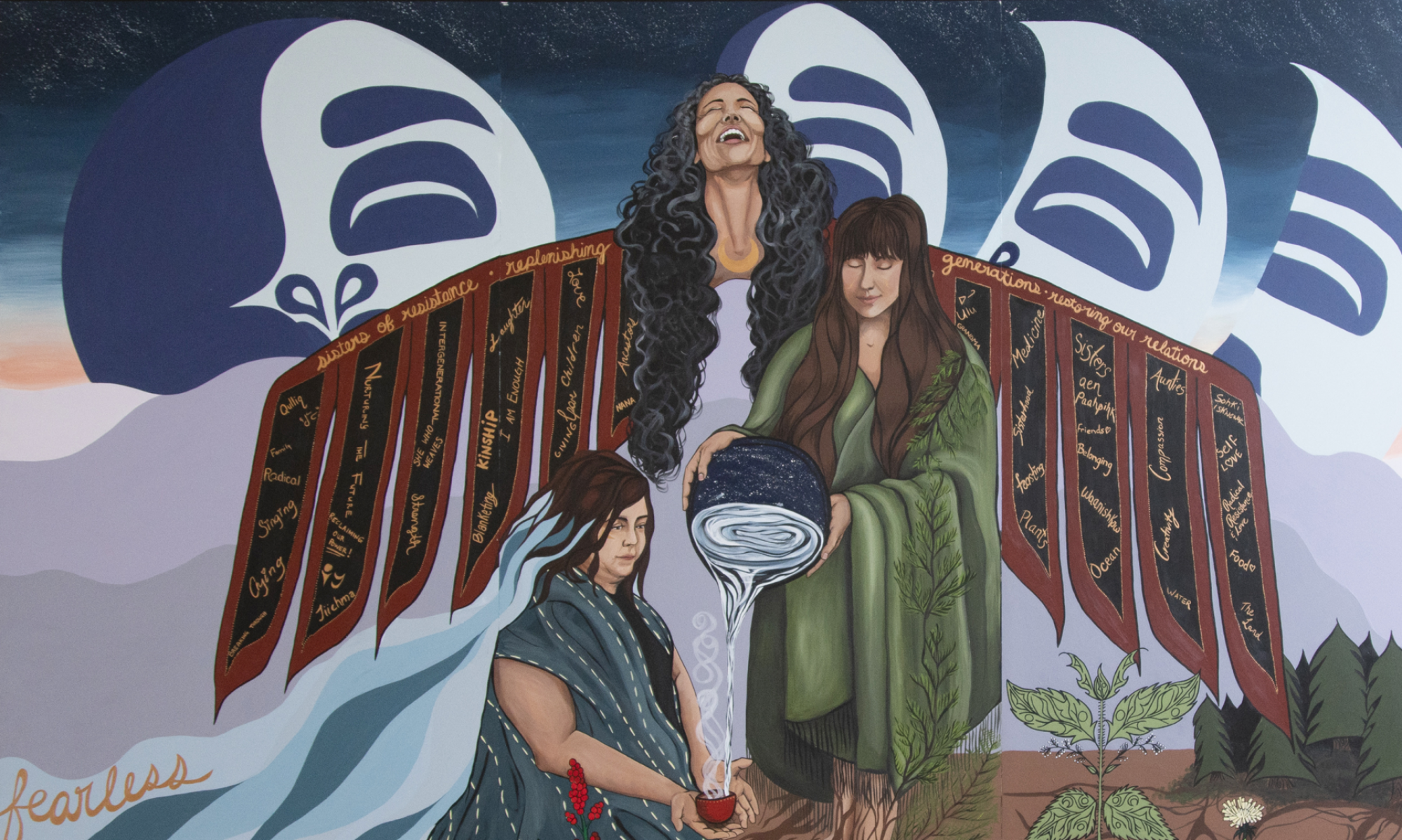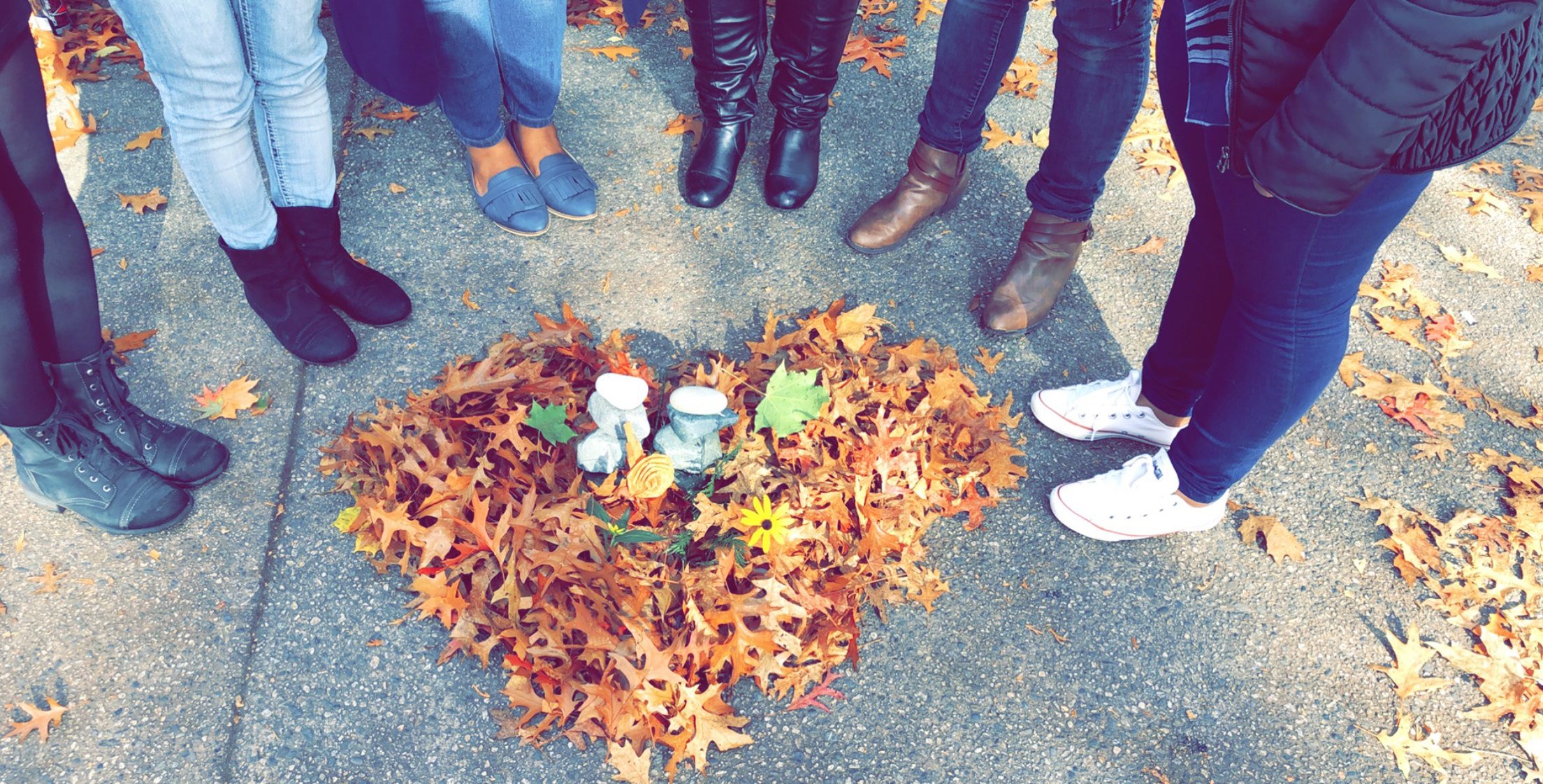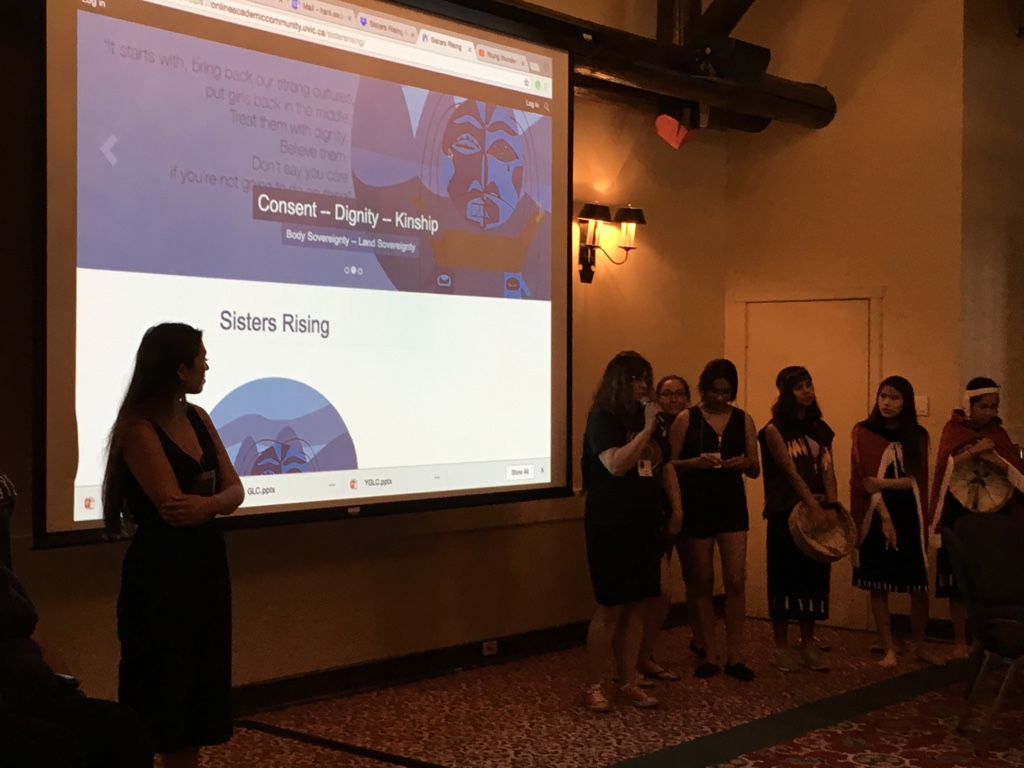 About Kinship Rising
About Kinship Rising
Shape Shifting Settler Violence Through Art and Land Retellings
Kinship Rising is an Indigenous-led research project based on the unceded homelands of the lək̓ʷəŋən, Songhees, SXIMEȽEȽ and W̱SÁNEĆ Nations.
Kinship Rising supports young people’s dignity, healing and strengths as we challenge and restory sexualized and gender-based violence. Our workshops and activities explore topics including dignity, safety, sexualized and gender violence, land-based well-being, and Indigenous resurgence. We refuse victim-blaming and criminalizing narratives of racialized gender violence by linking body sovereignty to decolonization and land sovereignty. Our work is focused on blanketing and honoring those who have experienced sexualized and gender-based violence.
Kinship Rising is guided by a strong inter-generational and land-based focus. We use natural, land-based materials as a way of rebodying all our relations. We also draw on creative multimedia methods, including photography, video, and digital storytelling, artwork, and poetry. Our activities have included circles with Elders, walks on the land, tanning hides, painting, collage and mask-making, spoken word, traditional felt and beading work, mural making, digital storytelling, and working with wool, stone, hide and cedar.
Restorying and Rebodying Colonial Gender Violence
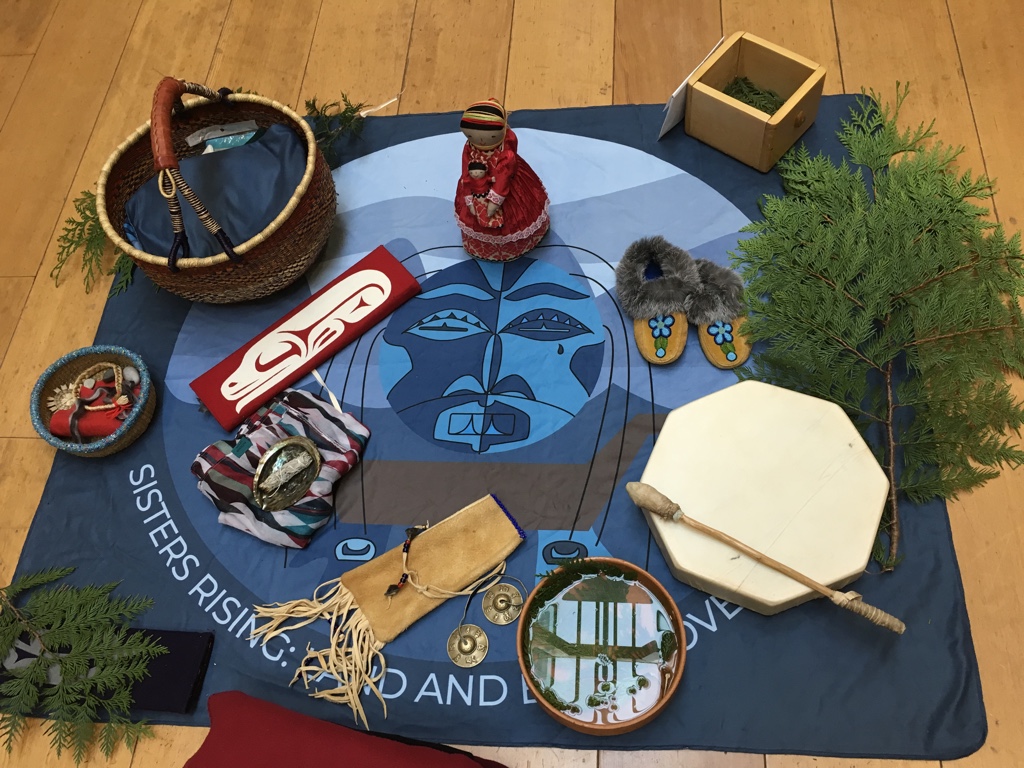
The United Nations has warned the world that Canada is facing an “epidemic[i]” of gender-based violence against Indigenous girls and women. Amid ongoing policies that perpetuate the sexualization and dehumanization of Indigenous girls, 2spirit youth and young women, thousands have been exploited, stolen, and murdered[ii]. Current colonial structural inequities set the conditions for sexualized and gender-based violence by stripping us of our rights, sovereignty, land, and cultural connections. Because of colonial ideologies, Indigenous girls and women experience the highest rates of poverty, under-housing, and sexual and racialized violence[iii]; are more likely to be apprehended by the child welfare system and removed from their families, communities, and connections to their mentors, cultures, and homelands[iv]; and are exposed to victim blaming and criminalization[v].
Research on sexualized violence in our communities tends to focus on the impact of risk and trauma, and on the legal, social and psychological costs of interventions. Kinship Rising centers the strengths and knowledge systems of Indigenous nations to explore how young people experience the historic and systemic colonial roots of sexualized violence. We restory colonial violence to disrupt ideologies that have always seen our bodies and our lands as disposable, as colonial property.
Body Sovereignty is Land Sovereignty: Land-based Resurgence
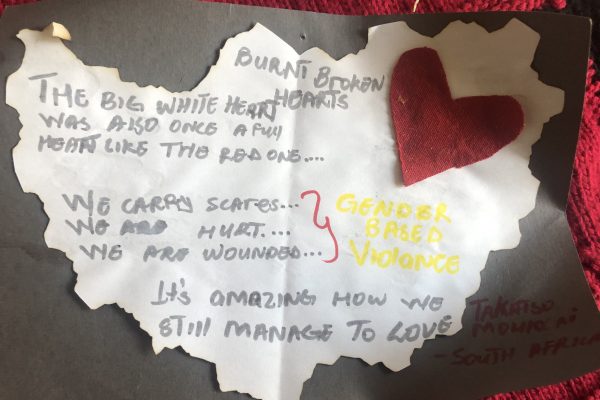
Body sovereignty is land sovereignty. Land is an important factor in restorying body sovereignty because as Indigenous peoples were removed from our homelands, our communities were also dismembered and dispirited from the places that hold our knowledges, languages and worldviews. Restorying and represencing our lands and stories is at the heart of our response to colonial sexualized and gender-based violence.
Our artwork and conversations are deeply linked to spirit and land. Our hand-made and land-based materials create bodied reconnections with our many teachers – all our relations – and enact kinship teachings. With land-based medicines and materials, youth share their experiences of self-love, dignity, sovereignty, sexual health, inter-generational trauma, consent, decolonization, land-based healing, teachings from Elders, lateral violence, the colonial roots of violence, racism, and 2spirit phobia.
Re-centering Indigenous Gender and Sexuality Teachings
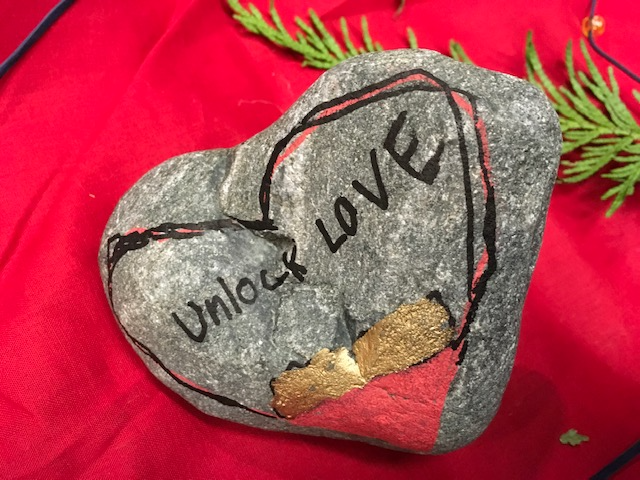
Kinship Rising recenters our sacred teachings of gender wellness and wellbeing. We use an all-genders framework as a way to refuse colonial gender binary frameworks. Oppressive colonial understandings of gender and sexuality, which emphasize white cis- and hetero-normativity, have muted Indigenous gender teachings and pathologize 2spirit and LGBTTQQ lived realities. We believe that supporting Indigenous young people to self-identify and build community using sexual and gender terminology and concepts that best fit for them and their communities is an important element of rebodying colonial gender-based violence. The well-being and resurgence of Indigenous communities requires upholding our gender frameworks beyond western concepts and terminology.
Much more needs to change to redress the persistent, sharp systemic inequities that sustain colonial violence. We thank you for witnessing this forum and invite you to make a commitment to moving these stories and actions forward in a good way.
The Kinship Rising team
[i] Anaya, J. (2013). United Nations special rapporteur on the rights of Indigenous peoples, James Anaya: Statement upon conclusion of the visit to Canada. United Nations, 15 October. Retrieved from http://unsr.jamesanaya.org/statements/statement-upon-conclusion-of-the-visit-to-canada
[ii] Truth and Reconciliation Commission of Canada. (2015). Honouring the truth, reconciling for the future (final report). Retrieved from http://www.trc.ca/websites/trcinstitution/File/2015/Honouring_the_Truth_Reconciling_for_the_Future_July_23_2015.pdf
[iii] Dhillon, J. (2015). Indigenous girls and the violence of settler colonial policing. Decolonization: Indigeneity, Education, & Society, 4(2), 1–31.
Hunt, S. (2015). Representing colonial violence: Trafficking, sex work, and the violence of law. Atlantis, 27(2), 25–39.
Ontario Native Women’s Association. (2016, February). Sex trafficking of Indigenous women in Ontario. Retrieved from http://www.onwa.ca/upload/documents/report-sex-trafficking-of-indigenous-wom.pdf
[iv] Beaucage, J. (2011). Children first: The Aboriginal advisor’s report on the status of Aboriginal child welfare in Ontario. Toronto: Ontario Ministry of Child and Youth Services, Government of Ontario.
[v] de Finney, S. (in press). Indigenous Girls’ Resilience in Settler States: Honoring Body and Land Sovereignty. Agenda.
de Finney, S., & Saraceno, J. (2014). Warrior girl and the searching tribe: Indigenous girls’ everyday negotiations of racialization under neocolonialism. In C. Bradford & M. Reimer (Eds.). Girls, texts, cultures. (pp. 113-138). Waterloo, ON: Wilfrid Laurier Press.
